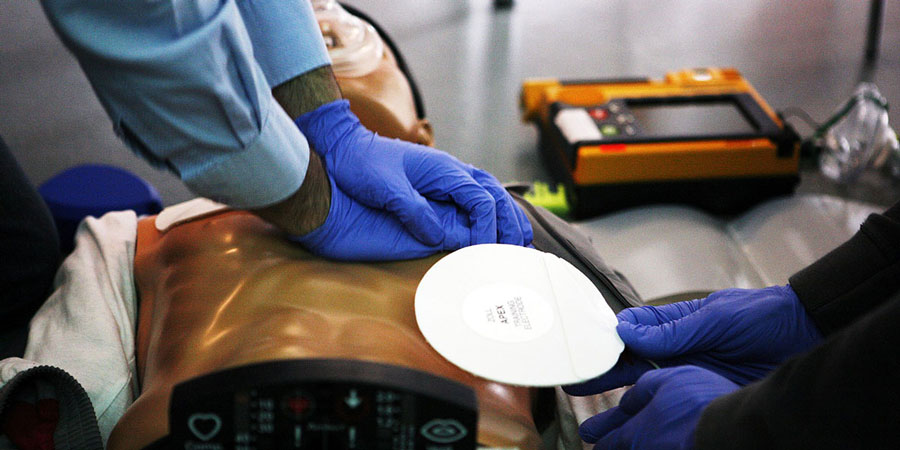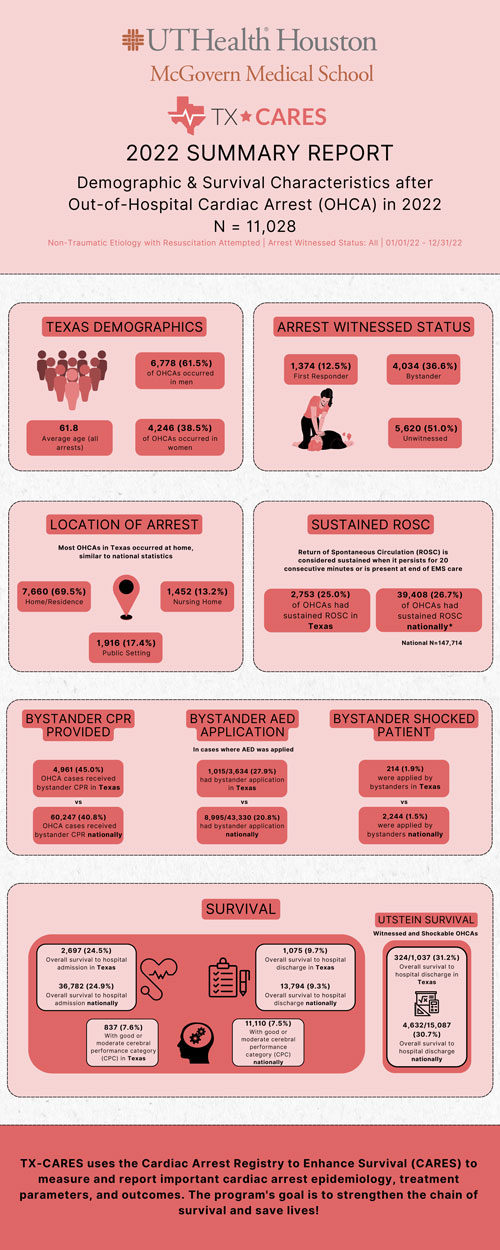TX-CARES working to improve emergency care

Since 2019, the McGovern Medical School Department of Emergency Medicine has been working to optimize patient outcomes after out-of-hospital cardiac arrest (OHCA) through the Texas-Cardiac Arrest Registry to Enhance Survival (TX-CARES). Prior to 2019, Texas was the largest state in the nation to not have a statewide OHCA registry.
“Our Department of Emergency Medicine is proud to be leading this statewide effort to save lives from cardiac arrest across Texas. While we are an academic department, we are committed to improving the public health of Texans,” said Bentley J. Bobrow, MD, FACEP, who as department chair has led the effort to fund, expand, and utilize the TX-CARES registry to its full potential.
TX-CARES is the cornerstone for quality improvement in OHCA care in communities statewide, allowing EMS agencies and hospitals to enhance outcomes by tracking patient demographic data, event characteristics, and essential treatment parameters. The TX-CARES registry allows communities to implement cardiac resuscitation initiatives and measure their effectiveness. Without this measurement piece, we have no way of knowing the true impact of interventions such as bystander CPR training initiatives, EMS quality improvement programs, or even hospital post-arrest care. In addition, Department of Emergency Medicine researchers using TX-CARES data have published cutting-edge, peer-reviewed research identifying large and unacceptable racial, ethnic, and socioeconomic disparities in prehospital and hospital OHCA care and outcomes statewide.
In 2022, TX-CARES added 11 EMS agencies statewide serving a total of 1.66 million people and grew the number of OHCA records reported to 11,028, an increase of more than eight percent from 2021 (10,142) and 37 percent from 2019 (6,913). Since the program’s inception in 2019, the total number of reporting agencies increased from 16 to 65 in 2022, and the program now covers roughly half Texas’s population, compared to 25 percent in 2019.
“Our efforts to disseminate and expand our TX-CARES program have been successful even during the pandemic. Our goal is for every community in Texas to have the same high quality of cardiac resuscitation response and the highest survival rates from OHCA.”
In November 2022, TX-CARES conducted an Out-of-Hospital Best Care Practices Symposium, attended by 111 prehospital and in-hospital Houston-area clinicians. Symposium faculty included professors from UTHealth Houston, the Penn Medicine TTM Academy, and medical directors from local EMS agencies. Please see more at www.tx-cares.com
“We are especially grateful to the McGovern Medical School for their strong support and advocacy for the Tx-CARES Program. Without this sustained support, Tx-CARES would not exist and we would not be able to carry out this important public health effort and would never have saved so many lives from cardiac arrest,” Bobrow said.
